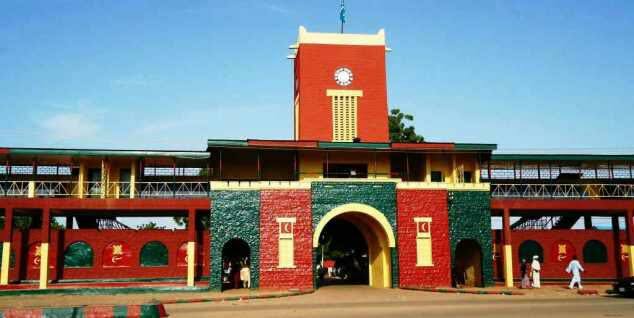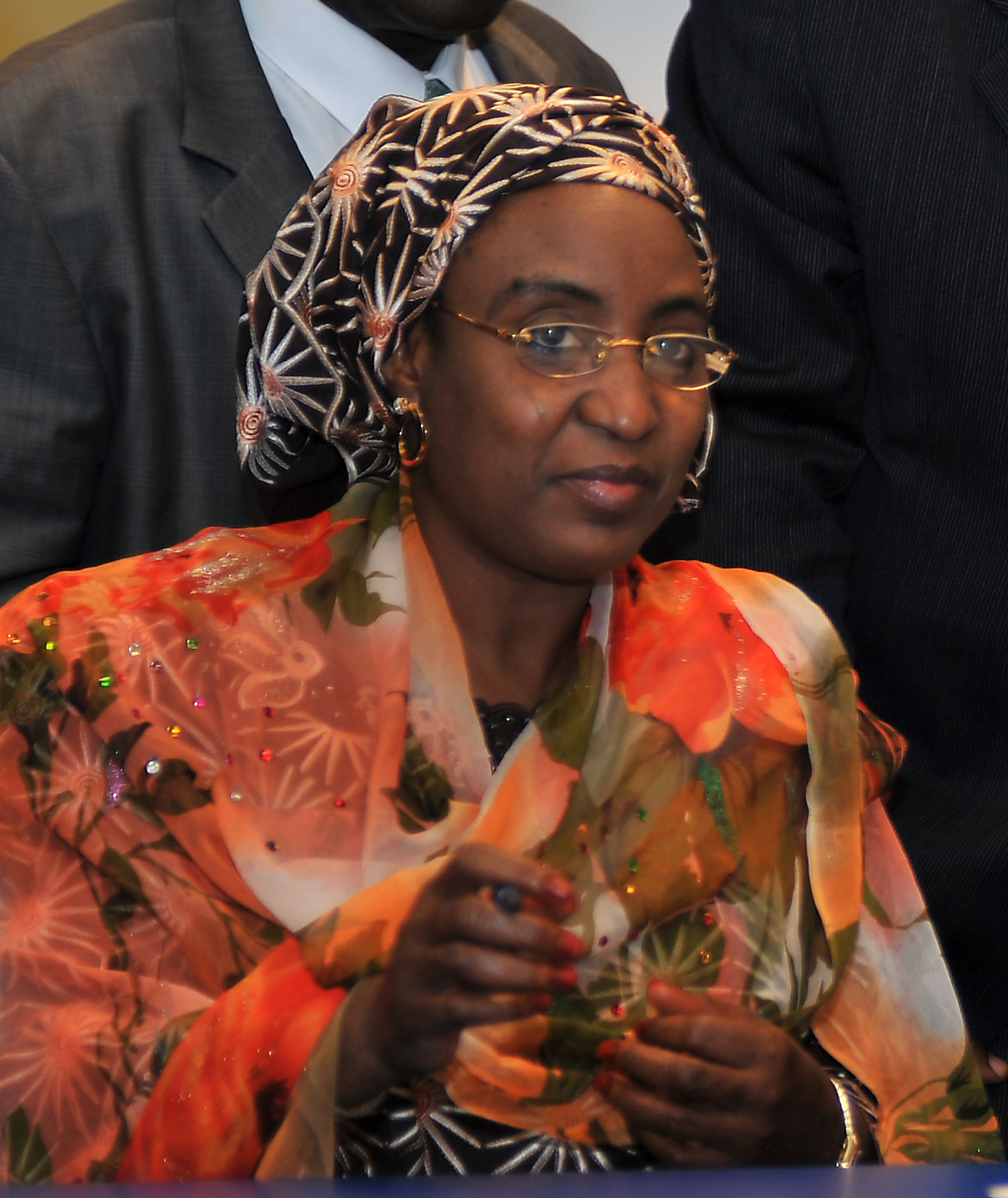|
Katsina
Katsina, likely from "Tamashek" eaning son or bloodor mazza enwith "inna" otheris a Local Government Area and the capital city of Katsina State, in northern Nigeria.Katsina The Encyclopædia Britannica Online. Retrieved February 20, 2007. Katsina is located some east of the city of and northwest of , close to the border with , Republic. In 2016, Katsina's estimated population was 429,000. [...More Info...] [...Related Items...] OR: [Wikipedia] [Google] [Baidu] |
Katsina State
Katsina State ''(Hausa: Jihar Katsina) (Fula: Leydi Katsina 𞤤𞤫𞤴𞤣𞤭 𞤳𞤢𞥁𞤭𞤲𞤢)'' is a state in the northwestern geopolitical zone of Nigeria. Katsina State was created in 1987, when it split from Kaduna State. Today, Katsina State borders Kaduna, Zamfara, Kano, and Jigawa States. Nicknamed the "Home of Hospitality", both the state capital and the town of Daura have been described "ancient seats of Islamic culture and learning" in Nigeria. With over 5,800,000 residents as at 2006, Katsina State is the fifth largest state in the country by population, despite the fact that it only ranks 17th out of 36 states in terms of area. Demographically, the Hausa people are the largest ethnic group in the state, and Islam is the most practiced religion. In 2005, Katsina became the fifth state in Nigeria to adopt Sharia law. The current Governor of Katsina State is Aminu Bello Masari, a member of the All Progressives Congress and ally of President Muhammadu Bu ... [...More Info...] [...Related Items...] OR: [Wikipedia] [Google] [Baidu] |
Umaru Yar'Adua
Umaru Musa Yar'Adua (16 August 19515 May 2010) was a Nigerian politician who, was the President of Nigeria from 2007 to 2010. He was declared the winner of the Nigerian presidential election held on 21 April 2007, and was sworn in on 29 May 2007. He served previously as the governor of Katsina state from 1999 to 2007; and was a member of the Peoples Democratic Party (PDP). In 2009, Yar'Adua left for Saudi Arabia to receive treatment for pericarditis. He returned to Nigeria on 24 February 2010, but died on 5 May. Early life Family Yar'adua was born in Katsina state, Nigeria. His father, Musa Yar'Adua, was a Minister for Lagos in the First Republic and held the chieftaincy title of Matawalle (custodian of the royal treasury) of the Katsina Emirate, a title which Yar'Adua inherited. His paternal grandfather, Malam Umaru, had also held the title of Matawallen Katsina, while his paternal grandmother, Binta, a Fulani from the Sullubawa clan, was a princess of the Katsina E ... [...More Info...] [...Related Items...] OR: [Wikipedia] [Google] [Baidu] |
Aminu Bello Masari
Aminu Bello Masari (born 29 May 1950) is a Nigerian politician and current Governor of Katsina State. He was the Commissioner for works, housing and transport Katsina state from 1991 to 1993. He was the speaker of the Nigerian House of Representatives between 2003 and 2007. Masari hails from Masari village of Kafur local government, Katsina State. Political career Masari contested for the office of Katsina State Governor in the 2011 election under the platform of defunct Congress for Progressive Change. He lost the Election to PDP's Ibrahim Shehu Shema. In December 2014 he emerged as the governorship candidate of the All Progressives Congress for the March 2015 elections. Aminu Bello was declared winner of the 11 April 2015 Katsina State Governorship election, defeating Musa Nashuni.Dikko Umaru Radda Aminu Bello Masari was sworn in as the Executive Governor of Katsina State on 29 May 2015. Immediately after his inauguration, amid financial recession in the country, Govern ... [...More Info...] [...Related Items...] OR: [Wikipedia] [Google] [Baidu] |
Ibrahim Shema
Ibrahim Shehu Shema (born 22 September 1957) is a Nigerian lawyer and politician who was elected Governor of the north western State of Katsina during the 2007 general elections. He was re-elected for another four-year term on 28 April 2011, running on the People's Democratic Party (PDP) platform. His second four-year term ended on 29 May 2015 after which he handed over to Aminu Bello Masari, elected governor on the platform of All Progressives Congress. Background Ibrahim Shema was born on 22 September 1957 at Dutsin-Ma town in Katsina State. He attended Nasarawa Primary School, Katsina (1964–1971) and Government Secondary School, Kafanchan (1972–1976). He studied at the College of Arts, Science & Technology, Zaria from 1977 to 1980, when he gained admission into Ahmadu Bello University, Zaria, graduating with an LLB in 1983. A year later, he obtained his B.L at the Nigeria Law School, Victoria Island, Lagos. While practicing law, he studied for a Master of Business Admi ... [...More Info...] [...Related Items...] OR: [Wikipedia] [Google] [Baidu] |
Daura
Daura is a town and Local Government Area in Katsina State, northern Nigeria. It is the spiritual home of the Hausa people. The emirate is referred to as one of the "seven true Hausa states" (Hausa Bakwai) because it was, (along with Biram, Kano, Katsina, Zazzau, Gobir, and Rano), ruled by the descendants of Bayajidda's sons with Daurama and Magira (his first wife). The University of California's African American Studies Department refers to Daura, as well as Katsina, as having been "ancient seats of Islamic culture and learning." History Daura is the city that Bayajidda, a figure from Hausa mythology, arrived at after his trek across the Sahara. Once there, he killed a snake (named Sarki, meaning "King") who prevented the people from drawing water from the well, and the local queen, Magajiya Daurama, married him out of gratitude; one of their seven children was named Daura. The Kusugu Well in Daura where Bayajidda is said to have slain Sarki is protected by a wooden shelter ... [...More Info...] [...Related Items...] OR: [Wikipedia] [Google] [Baidu] |
Hausa People
The Hausa ( autonyms for singular: Bahaushe ( m), Bahaushiya ( f); plural: Hausawa and general: Hausa; exonyms: Ausa; Ajami: ) are the largest native ethnic group in Africa. They speak the Hausa language, which is the second most spoken language after Arabic in the Afro-Asiatic language family. The Hausa are a diverse but culturally homogeneous people based primarily in the Sahelian and the sparse savanna areas of southern Niger and northern Nigeria respectively, numbering around 83 million people with significant indigenized populations in Benin, Cameroon, Ivory Coast, Chad, Sudan, Central African Republic, Republic of the Congo, Togo, Ghana, Eritrea, Equatorial Guinea, Gabon, Senegal and the Gambia. Predominantly Hausa-speaking communities are scattered throughout West Africa and on the traditional Hajj route north and east traversing the Sahara, with an especially large population in and around the town of Agadez. Other Hausa have also moved to large coastal cities in the re ... [...More Info...] [...Related Items...] OR: [Wikipedia] [Google] [Baidu] |
Flag Of Nigeria
Work toward freedom led to the formation of a national planning committee, which in 1958 named for a competition to choose a national flag. Thousands of designs were submitted, but the flag of equivalent green-white-green flat stripes, green stood for farming and white for unity and peace was chosen. The flag of the Federal Republic of Nigeria was designed in 1959 and first officially hoisted on 1 October 1960. The flag has three vertical bands of green, white, green. The two green stripes represent natural wealth, and the white represents peace and unity. Design The flag is an adaptation of the winning entry from Michael Taiwo Akinkunmi in a competition held in 1959. Akinkunmi was a 23-year-old student at the time he designed the flag. He was studying at Norwood Technical College in London, England, when he saw an advertisement in a newspaper that submissions were being accepted for the design of a new national flag of Nigeria. He submitted a triband design consisting ... [...More Info...] [...Related Items...] OR: [Wikipedia] [Google] [Baidu] |
Hausa Kingdoms
The Hausa Kingdoms, also known as Hausa Kingdom or Hausaland, was a collection of states started by the Hausa people, situated between the Niger River and Lake Chad (modern day northern Nigeria). Hausaland lay between the Western Sudanic kingdoms of Ancient Ghana and Mali and the Eastern Sudanic kingdoms of Kanem-Bornu. Hausaland took shape as a political and cultural region during the first millennium CE as a result of the westward expansion of Hausa peoples. They arrived to Hausaland when the terrain was converting from woodlands to savannah. They started cultivating grains, which led to a denser peasant population. They had a common language, laws and customs. The Hausa were known for fishing, hunting, agriculture, salt-mining, and blacksmithing. By the 14th century, Kano had become the most powerful city-state. Kano had become the base for the trans-Saharan trade in salt, cloth, leather, and grain. The Hausa oral history is reflected in the Bayajidda legend, which describes ... [...More Info...] [...Related Items...] OR: [Wikipedia] [Google] [Baidu] |
Abdulmumini Kabir Usman
Abdulmumini Kabir Usman is a Fulani from the Sullubawa Clan and the Emir of Katsina, Nigeria, and chancellor of University of Ilorin (He was former Chancellor of Obafemi Awolowo University Obafemi Awolowo University (OAU) is a federal government-owned university that is located in the ancient city of Ile-Ife, Osun State, Nigeria. The university was founded in 1961 and classes commenced in October 1962 as the University of Ife ...). He is the 50th emir of Katsina chronologically and the 4th from Sullubawa dynasty succeeding his father Muhammadu Kabir Usman. He was born on January 9, 1952. References 1952 births Living people Emirs of Katsina Nigerian Muslims Obafemi Awolowo University people University of Ilorin people {{Nigeria-bio-stub ... [...More Info...] [...Related Items...] OR: [Wikipedia] [Google] [Baidu] |
Fulani
The Fula, Fulani, or Fulɓe people ( ff, Fulɓe, ; french: Peul, links=no; ha, Fulani or Hilani; pt, Fula, links=no; wo, Pël; bm, Fulaw) are one of the largest ethnic groups in the Sahel and West Africa, widely dispersed across the region. Inhabiting many countries, they live mainly in West Africa and northern parts of Central Africa, South Sudan, Darfur, and regions near the Red Sea coast in Sudan. The approximate number of Fula people is unknown due to clashing definitions regarding Fula ethnicity. Various estimates put the figure between 25 and 40 million people worldwide. A significant proportion of the Fula – a third, or an estimated 12 to 13 million – are pastoralists, and their ethnic group has the largest nomadic pastoral community in the world., Quote: The Fulani form the largest pastoral nomadic group in the world. The Bororo'en are noted for the size of their cattle herds. In addition to fully nomadic groups, however, there are also semisedentary Fulani —F ... [...More Info...] [...Related Items...] OR: [Wikipedia] [Google] [Baidu] |
Fula People
The Fula, Fulani, or Fulɓe people ( ff, Fulɓe, ; french: Peul, links=no; ha, Fulani or Hilani; pt, Fula, links=no; wo, Pël; bm, Fulaw) are one of the largest ethnic groups in the Sahel and West Africa, widely dispersed across the region. Inhabiting many countries, they live mainly in West Africa and northern parts of Central Africa, South Sudan, Darfur, and regions near the Red Sea coast in Sudan. The approximate number of Fula people is unknown due to clashing definitions regarding Fula ethnicity. Various estimates put the figure between 25 and 40 million people worldwide. A significant proportion of the Fula – a third, or an estimated 12 to 13 million – are pastoralism, pastoralists, and their ethnic group has the largest nomadic pastoral community in the world., Quote: The Fulani form the largest pastoral nomadic group in the world. The Bororo'en are noted for the size of their cattle herds. In addition to fully nomadic groups, however, there are also semisedentary ... [...More Info...] [...Related Items...] OR: [Wikipedia] [Google] [Baidu] |
Niger
) , official_languages = , languages_type = National languagesRépublique du Niger, "Loi n° 2001-037 du 31 décembre 2001 fixant les modalités de promotion et de développement des langues nationales." L'aménagement linguistique dans le monde (accessed 21 September 2016) , languages = , religion_ref = , religion_year = 2012 , religion = , demonym = Nigerien , capital = , coordinates ... [...More Info...] [...Related Items...] OR: [Wikipedia] [Google] [Baidu] |







